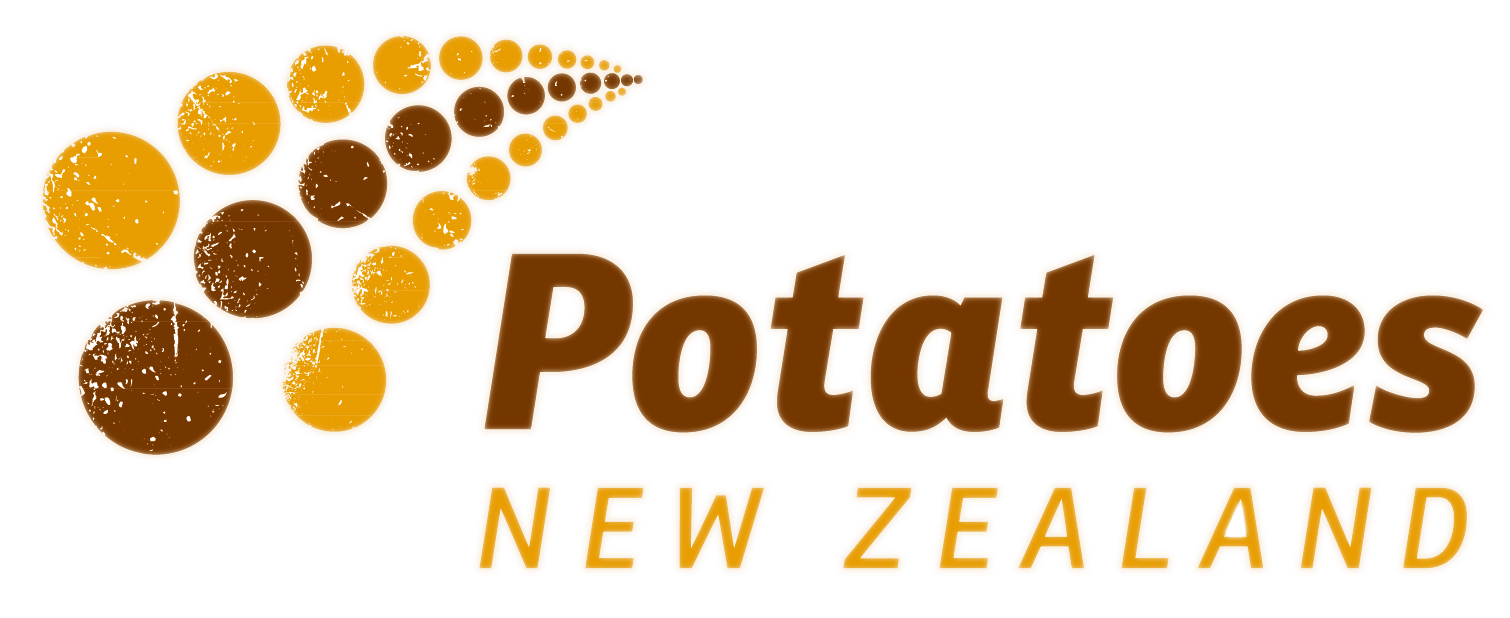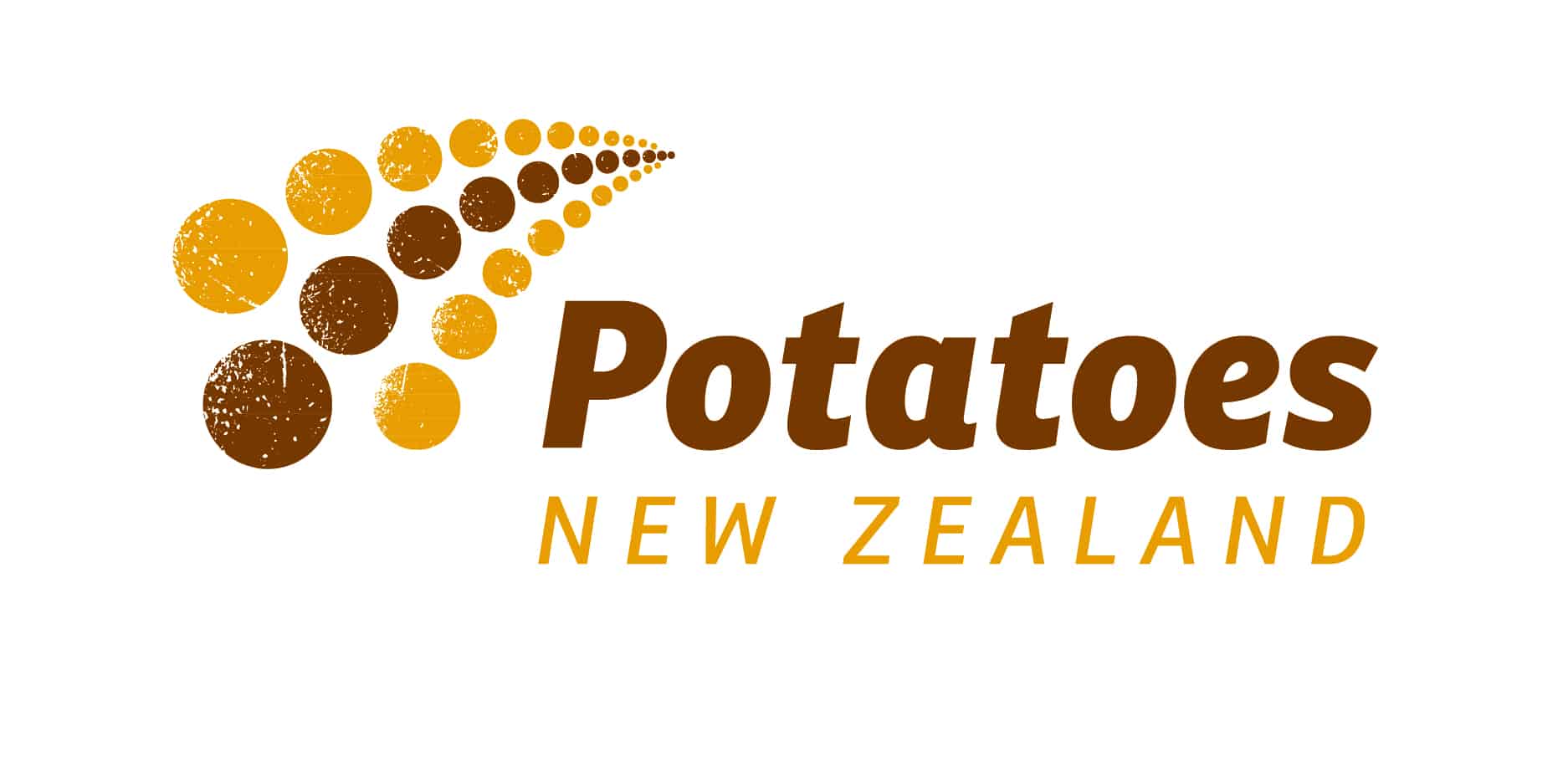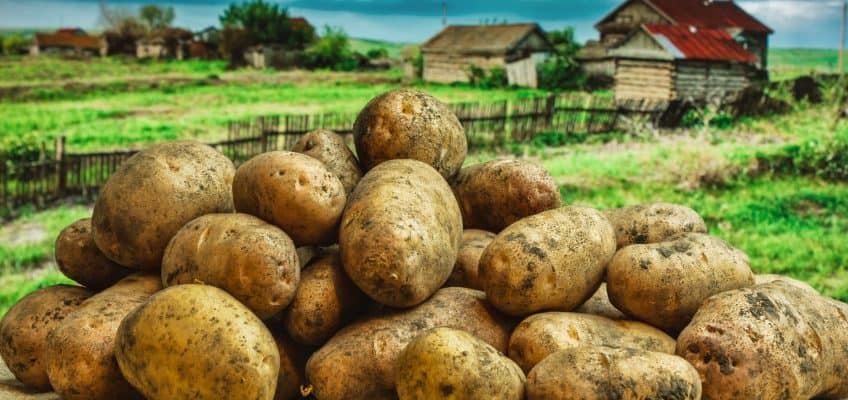by Gemma Carroll: Potatoes NZ communications and engagement officer.
The New Zealand potato industry saw supply chain disruptions, changing protocols for health and safety and a polarization of political and health ideologies in the last 21 months of the pandemic response.
NZ potato growers across the country have been under immense pressure due to imminent Regional Plan Changes, ongoing pest challenges, weather events, the threat to our processing sector due to cut-price European imports, (deemed not of enough material threat to respond to by our government) and in the Pukekohe/Waikato/Northland regions, massive disruption due to ongoing lockdowns and the spread of the Covid-19 Delta variant.
Through it all we have continued to deliver the best NZ potatoes to our markets and produce the best NZ potato products.
The data from 2020, presented in our Annual Report, shows continued value growth despite pandemic setbacks in the export market, thanks to a strong domestic market. The industry value is now $1.160 million, 58% growth since 2013 when industry targets were set.
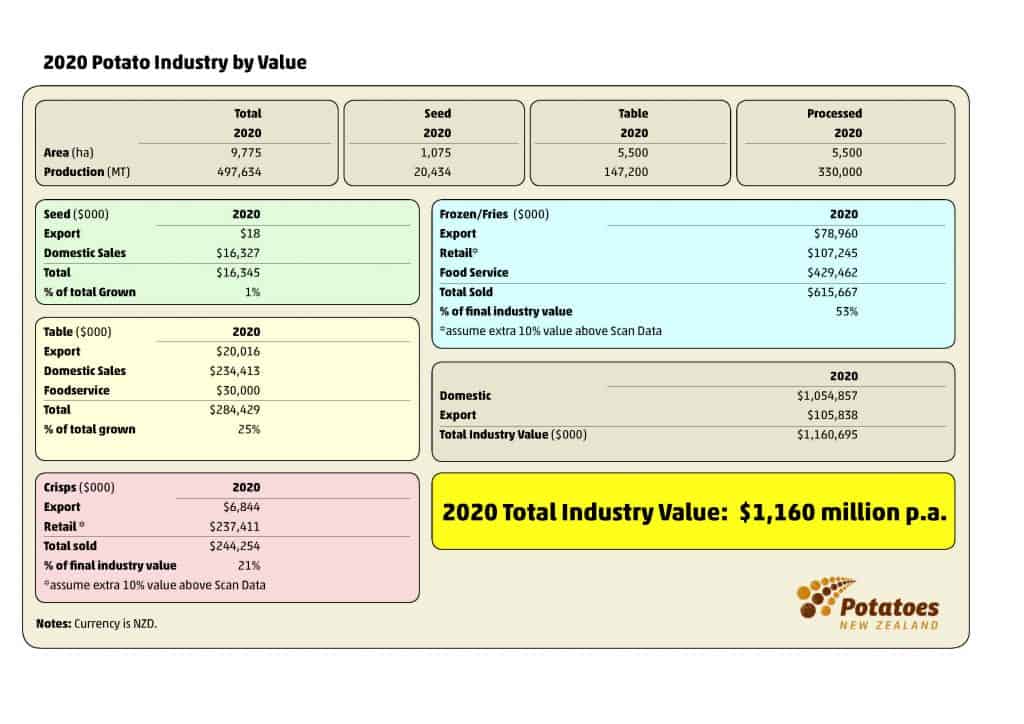
The sustainability challenge for our industry is how to both adapt to the climate crisis and mitigate any threats such as extreme weather events or pest and disease. This will, in part, be driven by regulatory compliance, but most farmers are aware of the environmental and climate challenges on their own farms, as we’ve heard at the PNZ grower insight meetings held this year.
The solutions are being sought in our research and development programme.
The NZ Potato Growers’ Levy is only spent on research, development, and extension (RD&E) activities.
In the last year $1.7 million was spent on RD&E which amounts to 112% of the levy. For every dollar of levy, we spend $1.12 on RD&E as we were directed to, by growers at the time of the last levy vote in 2019.
There are currently nine projects on the go,
- Potato Breeding
- Spectral Imaging
- Consumer Desired Flavour
- Identifying Potato Metabolites with high potential value
- Impact of potato varieties
- Chemical Strategy
- Potato Tuber Moth
- Canterbury Psyllid Liberibacter Initiative (CPLI)
- Sustainable Vegetable Systems (SVS)
Our two biggest projects, CPLI & SVS, address both sustainable quality and environmental sustainability.
The new CPLI programme launched in November this year to extend the work already done in previous psyllid projects and is led by the newly formed Canterbury Psyllid Liberibacter Initiative – a collective of like-minded farmers and industry representatives wanting to combat the devastating impact of the Liberibacter (Lso) bacterium which causes Zebra-chip in potato crops. CPLI is funded with a special Canterbury grower/processor levy and in-kind support from Potatoes New Zealand.
Research from the programme will be shared with the whole of industry. There are multiple workstreams planned to include a short-term examination of chemical resistance, medium-term work on alternative control measures, integrated pest management, over-wintering plant hosts, bio stimulants, and reducing psyllid impact once it is in the potato crop and long-term projects to breed for resistance and identify alternative control strategies.
The work is being undertaken both at Plant & Food Research Ltd (PFR) and on growers’ properties. This all builds on the previous projects which examined spray programme, day degree monitoring and psyllid behavioural research. You can read more about CPLI here https://potatoesnz.co.nz/rd-project/canterbury-psyllid-liberibacter-initiative/
The $7.5 million Sustainable Vegetable Systems (SVS) project is over a year underway and aims to
- Reduce the impact of crop farming on the environment and water quality while maintaining grower license to operate through national, regional and farm programmes.
- Enhance industries’ ability to grow, process and export products, while meeting environmental standards and maintaining international competitiveness.
- Maintain social licence to operate for vegetable growers and industries.
SVS has multiple workstreams, $4.5 million funding from the Ministry for Primary Industries, is led by Potatoes NZ and partners with Vegetable Research and Innovation and Horticulture New Zealand. Trials and monitoring take place both at PFR and on growers’ properties.
Potatoes will play a major role in helping sustainably feed Aotearoa and the world, using fewer resources, and requiring less land. Key takeaways from a recent World Potato Market article, written in response to the 2019 Eat Lancet report1, indicate that potatoes score very well on environmental impact, producing less CO2, lower nitrate leaching and requiring less water to produce than legumes, wheat, or rice. Spuds also require less area to grow, and 5kg can be produced in 1m², about ¼ of the area for equivalent in rice and much less than needed to produce a kilogram of legumes.
The Barilla Center’s (sic) double food pyramid depicts the nutritional value of food and its environmental impact, with potatoes appearing in the base layer of the nutrition pyramid denoting high nutritional value and in the tip of the environmental pyramid denoting low impact.
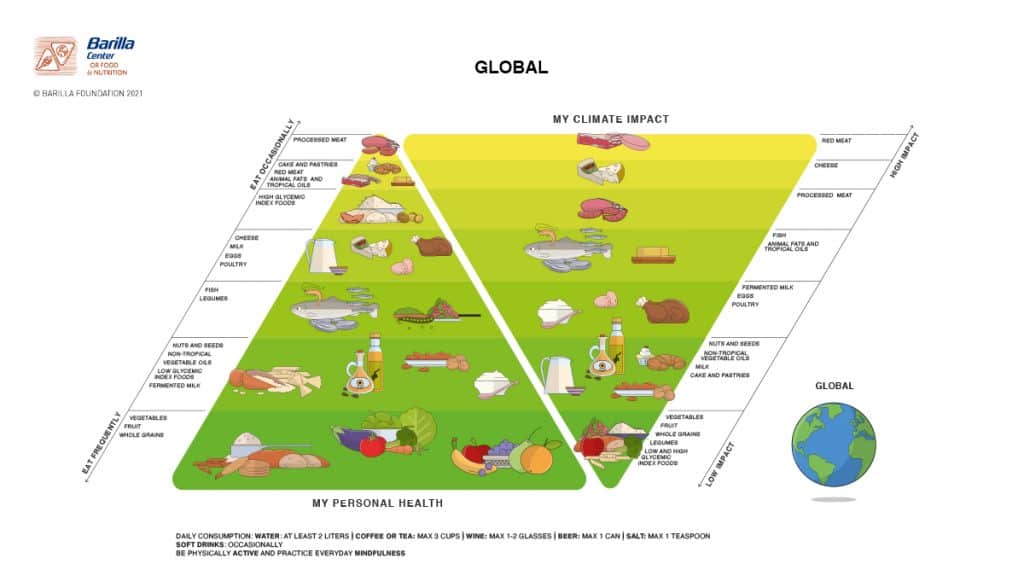
New Season potatoes are in store now. It is the happiest time of year for spud lovers and the busiest time of year for our growers, in Northland, Pukekohe, Manawatu and Canterbury.
Not only do our growers provide some of the best food for NZ consumers, but our industry has sustainability themed initiatives and strategic targets of net zero emissions by 2035.
We are a +$1-billion-dollar industry and we ensure our grower levies are used to continue to improve potato breeding, environmental management, sustainable practices and to encourage healthy consumer choices by including free online foodservice training.
We wish all our growers, processors and wider industry a Merry Christmas and a very Happy New Year!
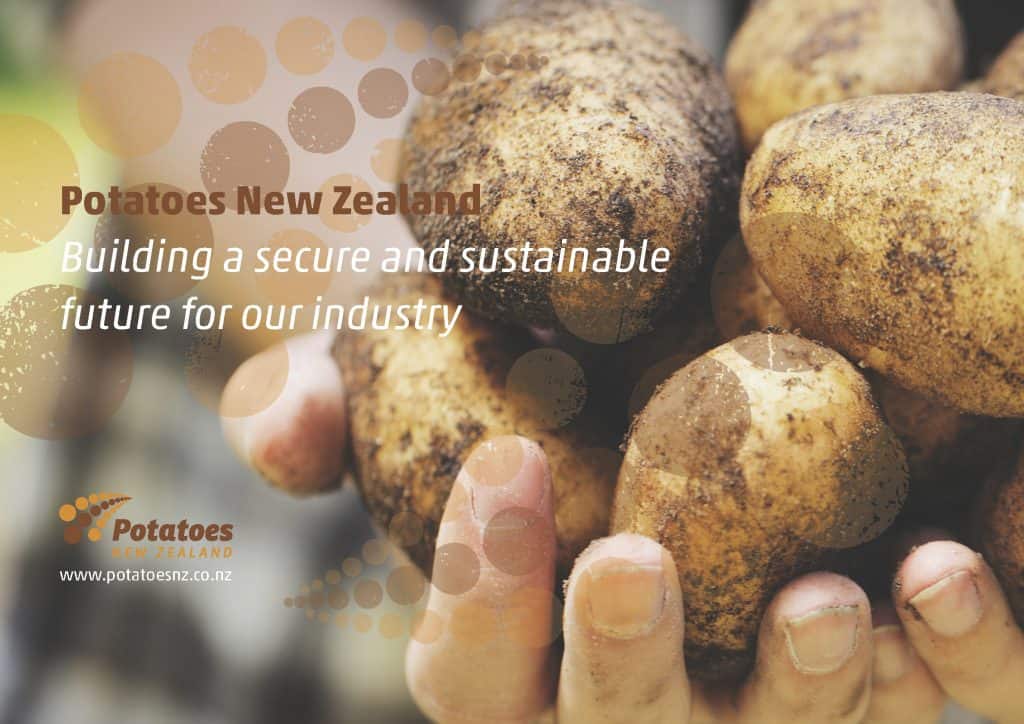
1https://eatforum.org/eat-lancet-commission/eat-lancet-commission-summary-report/
